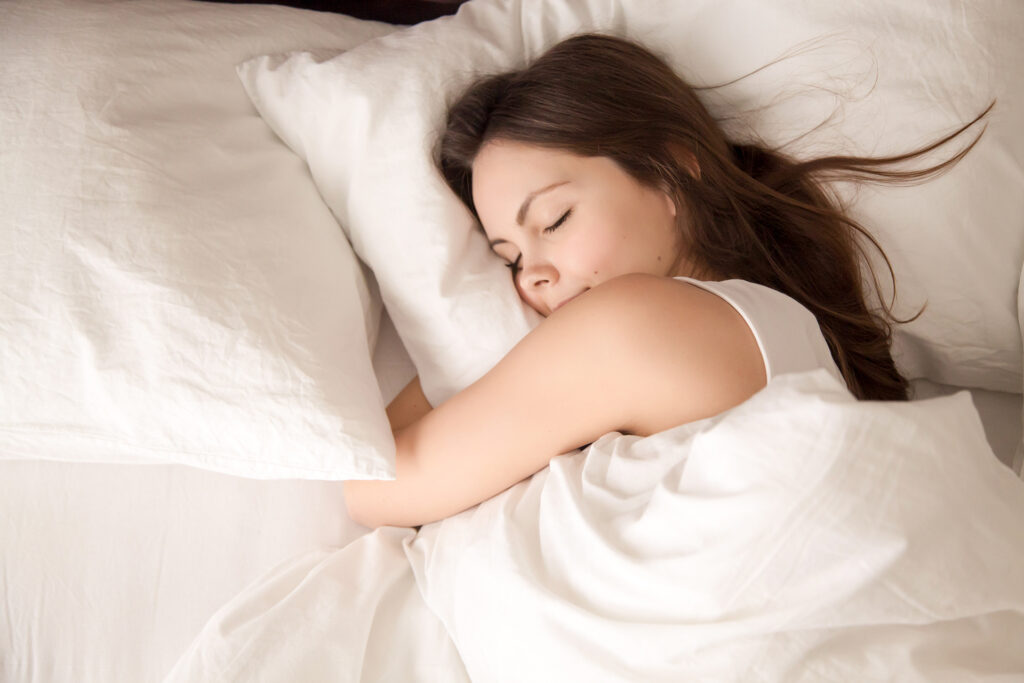5 Reasons Why Good Sleep Is Important For Overall Health

By James Wilson AKA The Sleep Geek
1 Sleep Helps Build Emotional Resilience – It Gives You An Overnight Counselling Session
One of the most important functions of sleep is that it helps us deal with the emotions of the day, the stresses and strains that life throws at us. This “overnight counselling session” occurs during REM sleep, which happens later in your sleep cycle. During REM sleep you are more likely to come fully out of your sleep cycle, and it is usually REM sleep that is disrupted most if we don’t meet our sleep need.
At some point most of us will have felt the downside of missing out on REM sleep. When we sleep poorly our emotional wellbeing suffers and we are more likely to struggle to control negative emotions, like anger, fear or anxiety. Think about it, sleep well and you can deal with the slings and arrows that the world throws at you. Sleep poorly and you are ready to blow, ready to just lose it. Getting the sleep we need means that our emotional reliance strengthens and we avoid shouting at the world.
2 Sleep Is When Our Bodies Recover Physically
As well as improving our emotional health, sleep also strengthens our physical health. During slow wave sleep (also known as deep sleep or non REM stage 3 sleep) our body recovers from the physical exertions of the day, repairing muscles, organs and cells. Growth hormones are released to carry out these physical repairs and chemicals that improve the immune system are released. If we are particularly active in our lives then we need to ensure we give our bodies the time and space to repair, by giving our sleep enough attention.
3 Poor Sleep Makes It Harder To Stick To A Healthy Diet
Sleep has a profound impact on some of the important hormones that regulate our eating. Poor sleep makes us feel hungrier quicker, because of the increase in production of the hormone ghrelin, and when we eat it takes us longer to feel full (by diminishing levels of the hormone leptin.) In addition to this, we crave the quick energy boosts that sugar and junk food give us, when we are sleep deprived and often turn to caffeine to keep us awake (which can then impact on night time sleep) and alcohol to help us sleep. Alcohol, however, doesn’t help – it knocks us out and has a detrimental impact on REM sleep, the stage of sleep which helps manage our emotional wellbeing. If you are looking to lose weight, then start by addressing any sleep issues you may have.
4 Sleep Helps Build Brain Health
During sleep, our brain is incredibly active consolidating memory, working through the emotions of the day, and repairing itself. One of the most important jobs carried out during sleep is a “washing” of the brain that occurs through the night in waves. Cerebrospinal fluid, a fluid that is present in our brain and our spine removes metabolic waste that includes toxic proteins that could form build ups that inhibit the flow of information between different parts of our brain. Additionally, these toxic proteins are thought to contribute to the progression of Alzheimer’s disease. Sleep is brilliant, isn’t it?
5 Good Sleep Leads To A Good Sex Life (& Vice Versa)
Both sex and sleep are activities that are usually done in bed, but the relationship between the two is much more interesting than just that. For starters, research shows that if we have met our sleep need, at night we are more likely to be interested in sex the next day. Poor sleep leads the brain to reduce the production of hormones that drive sex such as eostrogen and testoterone and increase the production of stress hormones such as cortisol. But it also works the other way too. Research showed that 64% of participants slept better after having an orgasm and a close sexual relationship, helping provide the emotional security that helps us feel relaxed and ready for sleep before bed.










